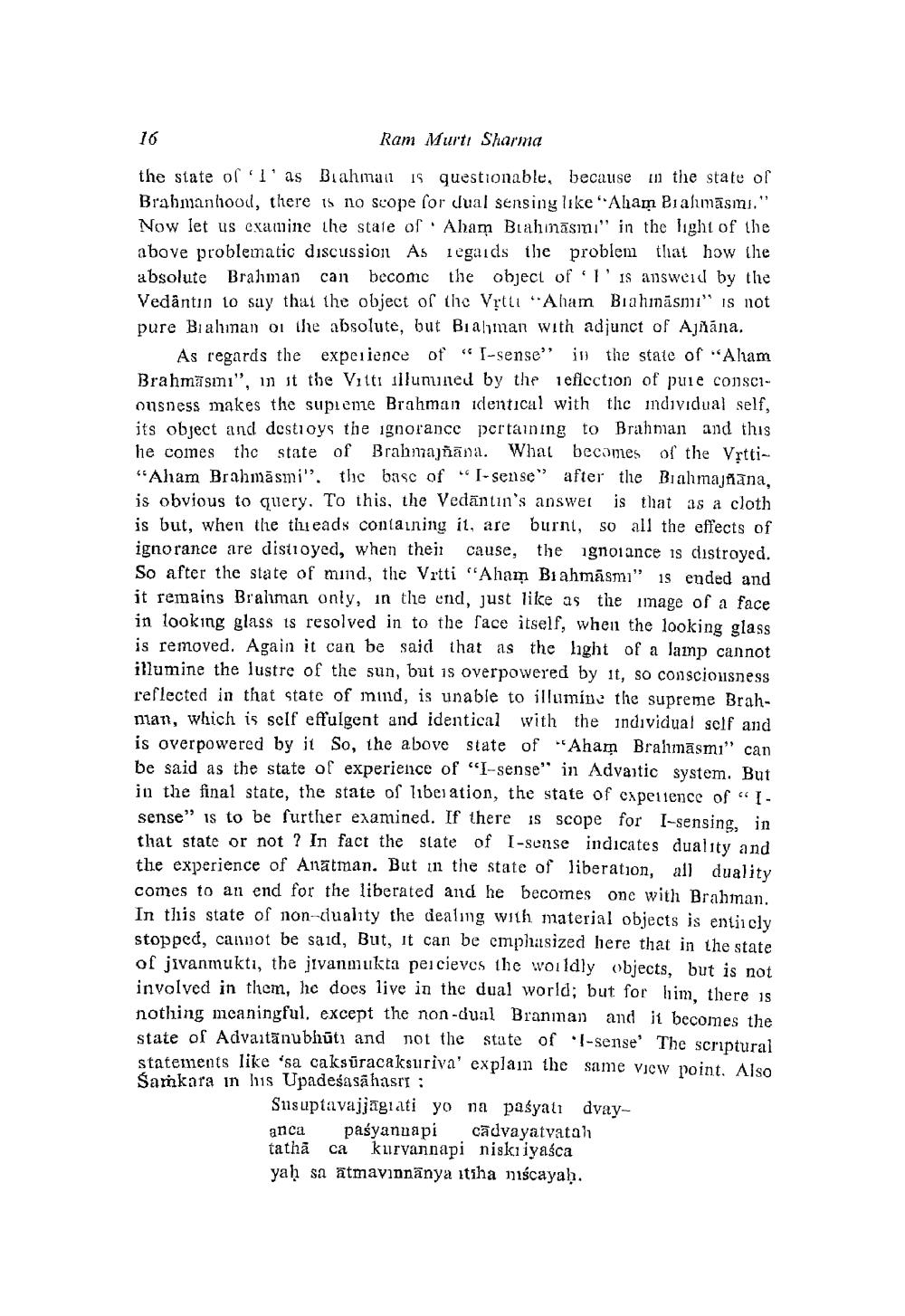________________
16
Ram Murti Sharma
the state of T'as B ahmaul is questionable, because in the state of Brahmanhood, there is no scope for dual sensing like "Aham Bialmāsını." Now let us examine the state of · Abam Buahinasını" in the light of the above problematic discussion As regards the problem that how the absolute Braluman can become the object of 'I' is answeid by the Vedantin to say that the object of the Vitti “Aham Biahināsmi" is not pure Bi alman on the absolute, but Brahman with adjunct of Ajñāna.
As regards the experience of “I-sense" in the state of Alam Brahmāsını", inst the Vitti illununed by the reflection of pure consciousness makes the supreme Brahman identical with the individual self, its object and destioys the ignorance pertaining to Brahman and this he comes the state of Brahmajñāna. What becomes of the Vrtti"Aham Brahmāsmi". the base of “I-sense" after the Brahmajñana, is obvious to query. To this, the Vedāntin's answer is that as a cloth is but, when the threads containing it, are burnt, so all the effects of ignorance are distioyed, when their cause, the ignorance is distroyed. So after the state of mind, the Vrtti "Aham Biahmāsmı" is ended and it remains Brahman only, in the end, just like as the image of a face in looking glass is resolved in to the face itself, when the looking glass is removed. Again it can be said that as the hight of a lamp cannot illumine the lustre of the sun, but is overpowered by it, so consciousness reflected in that state of mind, is unable to illumine the supreme Brahnian, which is self effulgent and identical with the individual self and is overpowered by it So, the above state of "Aham Brahmāsmı" can be said as the state of experience of “I-sense" in Advaitic system. But in the final state, the state of libei ation, the state of experience of "Isense" is to be further examined. If there is scope for 1-sensing, in that state or not ? In fact the state of I-sense indicates duality and the experience of Anatman. But in the state of liberation, all duality comes to an end for the liberated and he becomes one with Brahman. In this state of non-cluality the dealing with material objects is entiicly stopped, cannot be said, But, it can be emphasized here that in the state of jivanmukti, the jivanmukta peicieves the woildly objects, but is not involved in them, he does live in the dual world; but for him, there is nothing meaningful, except the non-dual Branman and it becomes the state of Advaitānubhūti and not the state of 'l-sense' The scriptural statements like 'sa caksüracaksuriva' explain the same view point. Also Samkara in his Upadeśasāhasri :
Susuptavajjagiati yo na paśyatı dvayanca paśyanyapi câdvayatvatal tathā ca kurvannapi niski iyaśca yah sa atmavinnānya ittha miscayah.




